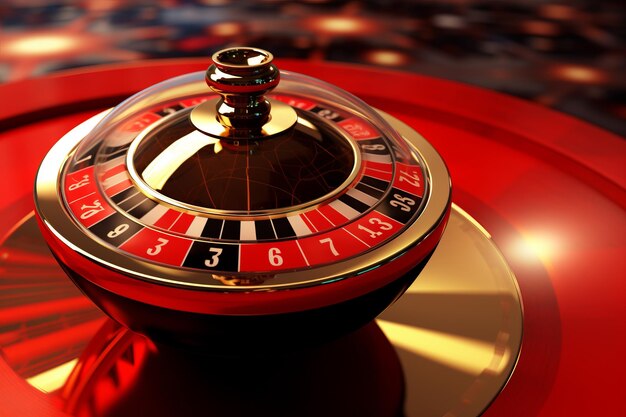united-docs.com – The roulette wheel is a captivating and mysterious game apparatus that has been captivating gamblers for centuries. Its allure lies in the anticipation and excitement it generates, as the spinning wheel determines the fate of bets placed on the table. In this article, I will delve into the secrets behind the roulette wheel, exploring its history, components, and how it works. Join me on this journey as we unveil the enigma of the roulette wheel.
History of the roulette wheel
The origins of the roulette wheel can be traced back to 17th century France. Blaise Pascal, a renowned mathematician, is often credited with inventing the roulette wheel while attempting to create a perpetual motion machine. The early versions of the wheel featured pockets labeled with numbers from 1 to 36, alternating between red and black. However, the modern roulette wheel we know today includes a green pocket labeled with the number zero.
Components of the roulette wheel
To understand the secrets of the roulette wheel, it is important to familiarize ourselves with its components. The roulette wheel consists of a rotating disc divided into numbered pockets, a ball, and a stationary track. The disc is carefully balanced to ensure a random and unbiased outcome. The pockets are colored red, black, or green, with numbers ranging from 0 to 36. The ball is made of ivory or synthetic material, and it is spun in the opposite direction of the wheel. As the ball loses momentum, it eventually settles into one of the numbered pockets, determining the winning number.
How the roulette wheel works
The roulette wheel operates on the principles of physics and probability. When the croupier spins the wheel, they apply a specific force and angle, causing the ball to travel around the track. As the ball loses speed, it falls into one of the numbered pockets. The outcome of each spin is completely independent and random, as the wheel’s design and balance ensure an unbiased result. The presence of the green zero pocket gives the house an edge, increasing the odds in favor of the casino.
Different types of roulette wheels
There are several variations of the roulette wheel, each with its own unique characteristics. The most common types include the European, American, and French roulette wheels. The European wheel features 37 pockets, numbered from 0 to 36, with a single green zero pocket. The American wheel, on the other hand, has 38 pockets, including an additional double zero pocket. The French wheel is similar to the European wheel, but it offers additional betting options such as the “La Partage” and “En Prison” rules, which reduce the house edge.
Famous roulette wheel stories and legends
Throughout history, the roulette wheel has captured the imagination of gamblers, leading to numerous stories and legends. One famous tale involves Joseph Jagger, a British engineer who successfully exploited a biased roulette wheel in the late 19th century. By carefully observing the outcomes of the wheel, Jagger discovered that certain numbers appeared more frequently than others. He used this knowledge to his advantage and won a significant amount of money before his strategy was discovered and the biased wheel was corrected.
Tips and strategies for playing roulette
While the roulette wheel is primarily a game of chance, there are strategies and tips that can enhance your chances of winning. One popular strategy is the Martingale system, where you double your bet after each loss, aiming to recoup previous losses and make a profit. However, it is important to note that no strategy can guarantee consistent winnings, as the outcome of each spin is entirely random. It is essential to set a budget, play responsibly, and remember that roulette is ultimately a form of entertainment.
The psychology behind the roulette wheel
The roulette wheel’s allure extends beyond its mechanics and strategies. The game’s psychology plays a significant role in its appeal. The spinning wheel, the sound of the ball, and the anticipation of the outcome create an exhilarating experience for players. The uncertainty and risk involved in roulette can trigger a surge of adrenaline, making it a thrilling form of entertainment. Understanding the psychology behind the roulette wheel can help players manage their emotions and enjoy the game responsibly.
Online roulette wheels vs. land-based roulette wheels
With the advent of online casinos, the roulette wheel is now available in digital form. Online roulette offers convenience and accessibility, allowing players to enjoy the game from the comfort of their own homes. However, some players argue that the online version lacks the excitement and atmosphere of a land-based casino. In a land-based casino, players can interact with the croupier and other gamblers, adding a social element to the game. Ultimately, the choice between online and land-based roulette depends on personal preferences and the experience one seeks.
Conclusion: The allure of the roulette wheel
The roulette wheel continues to captivate and mystify players around the world. Its rich history, intricate components, and the physics behind its operation make it a fascinating game of chance. Whether you are a seasoned gambler or a curious novice, the secrets behind the roulette wheel will always hold an undeniable allure. So the next time you spin the wheel, remember the centuries of history and the enigma that lies within each rotation.
